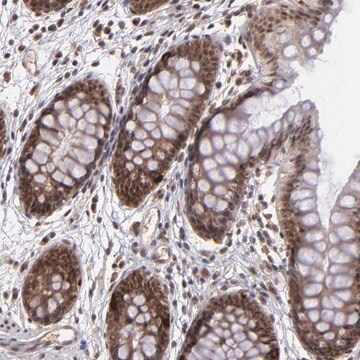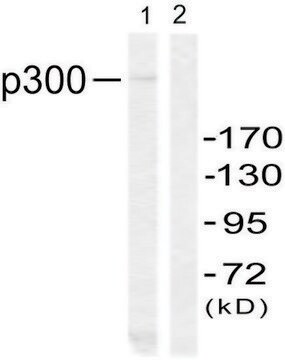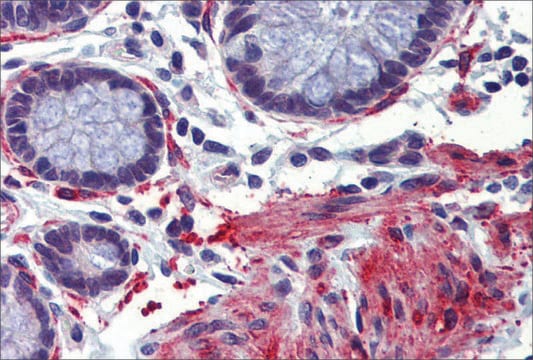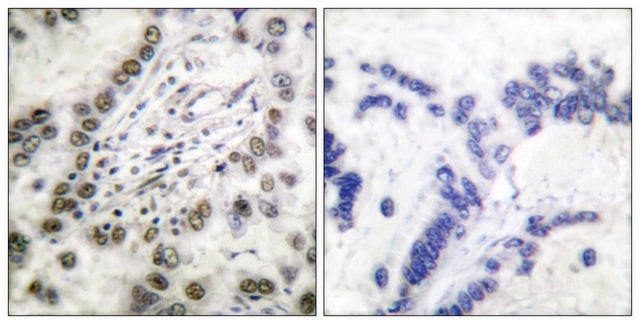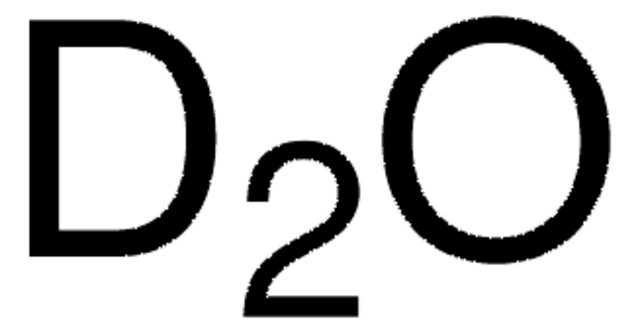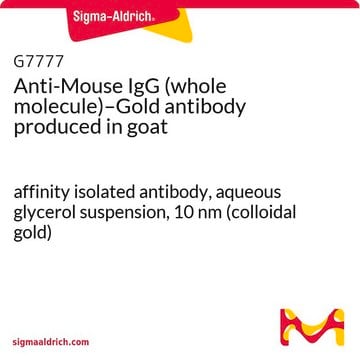P2859
Anti-p300/CBP antibody, Mouse monoclonal
clone NM11, purified from hybridoma cell culture
Synonym(s):
Anti-CREB Binding Protein
About This Item
Recommended Products
biological source
mouse
Quality Level
conjugate
unconjugated
antibody form
purified immunoglobulin
antibody product type
primary antibodies
clone
NM11, monoclonal
form
buffered aqueous solution
mol wt
antigen 300 kDa
species reactivity
mouse, rat, human, mink, monkey
concentration
~2 mg/mL
technique(s)
immunocytochemistry: suitable
immunoprecipitation (IP): suitable
microarray: suitable
western blot: 10-20 μg/mL using human 293 embryonal kidney cells
isotype
IgG1
UniProt accession no.
shipped in
dry ice
storage temp.
−20°C
target post-translational modification
unmodified
Gene Information
human ... KAT2B(8850)
mouse ... Kat2b(18519)
rat ... Pcaf(301164)
Related Categories
General description
Specificity
Immunogen
Biochem/physiol Actions
KAT2B (lysine acetyltransferase 2B) possess histone acetyltransferase (HAT) activity and is thus known to regulate transcription process. Acetylation also influences the chromatin structure. Lysine acetylation significantly contributes to protein modification. It is essential for establishing protein function by altering its structure, activity and molecular interaction.
Physical form
Disclaimer
Not finding the right product?
Try our Product Selector Tool.
Storage Class Code
10 - Combustible liquids
WGK
nwg
Flash Point(F)
Not applicable
Flash Point(C)
Not applicable
Regulatory Listings
Regulatory Listings are mainly provided for chemical products. Only limited information can be provided here for non-chemical products. No entry means none of the components are listed. It is the user’s obligation to ensure the safe and legal use of the product.
JAN Code
P2859-BULK:
P2859-.2ML:
P2859-VAR:
Certificates of Analysis (COA)
Search for Certificates of Analysis (COA) by entering the products Lot/Batch Number. Lot and Batch Numbers can be found on a product’s label following the words ‘Lot’ or ‘Batch’.
Already Own This Product?
Find documentation for the products that you have recently purchased in the Document Library.
Our team of scientists has experience in all areas of research including Life Science, Material Science, Chemical Synthesis, Chromatography, Analytical and many others.
Contact Technical Service
